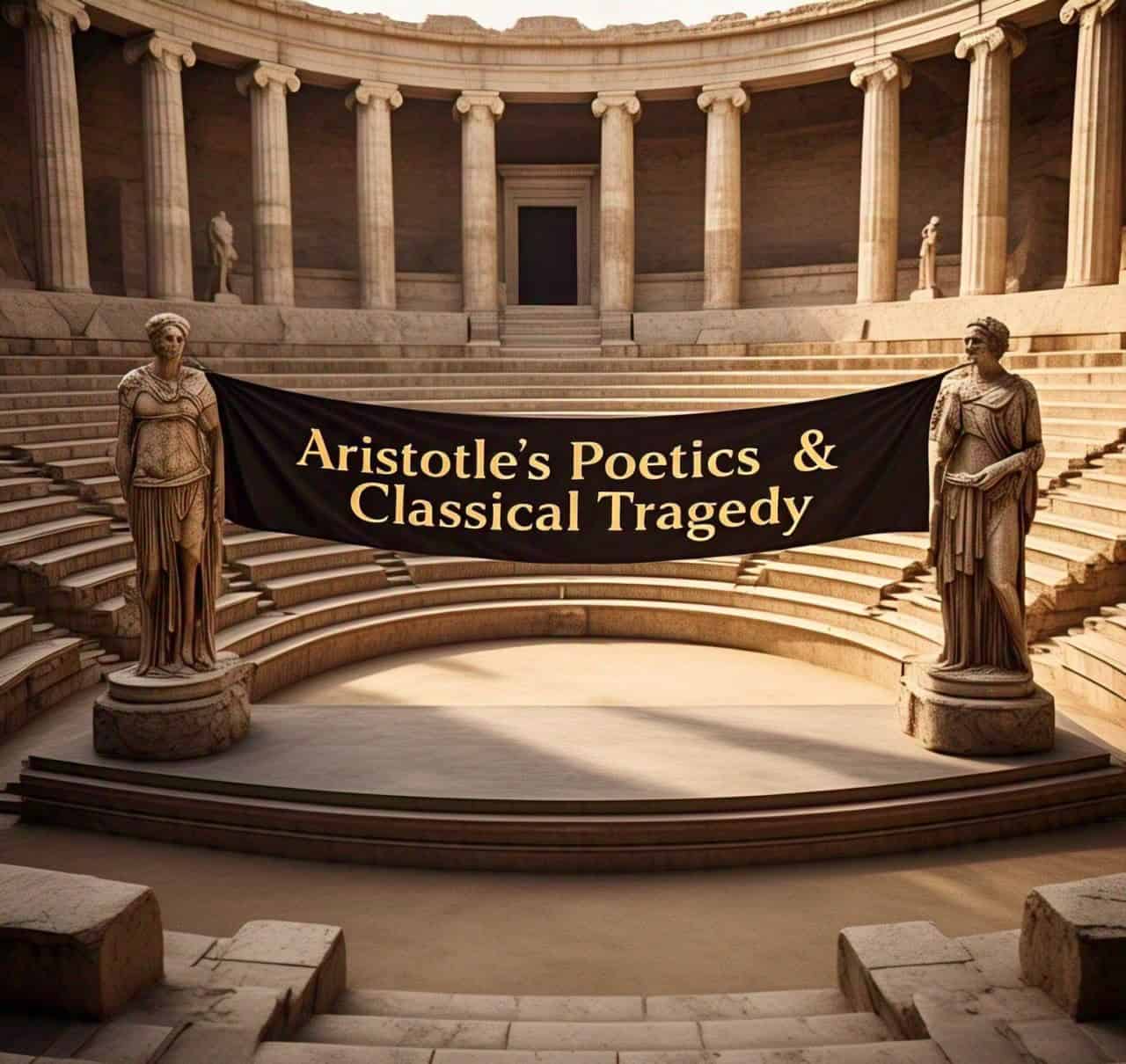

Aristotle’s Poetics and Classical Tragedy
Aristotle was a great Greek philosopher who lived in the 4th century BCE. He wrote a book called Poetics, in which he explained the rules of drama, especially tragedy. His ideas about tragedy have influenced writers for centuries. According to Aristotle, tragedy is the highest form of drama because it teaches moral lessons and makes the audience feel deep emotions.
Aristotle defined tragedy in his Poetics as “an imitation of an action that is serious, complete, and of a certain magnitude, in the form of action, not narration, with incidents that arouse pity and fear, leading to catharsis.”
This means that a tragedy is a serious story that is acted out on stage. It follows a structured plot and has important events that make the audience feel strong emotions, like pity and fear. These emotions help the audience learn something from the story.
A tragic hero is the main character in a tragedy. According to Aristotle’s Poetics, the tragic hero must have the following qualities:
Some famous tragic heroes are Oedipus from Oedipus Rex by Sophocles, Hamlet from Hamlet by Shakespeare, and Macbeth from Macbeth by Shakespeare.
Catharsis is one of the most important ideas in Aristotle’s theory of tragedy written in his Poetics. It means the release of emotions, especially pity and fear, that happens when the audience watches a tragic play.
For example, in Oedipus Rex, the audience feels pity for Oedipus because he did not know that he was fulfilling a terrible prophecy. They also feel fear because they realize that fate can be cruel. By the end of the play, the audience experiences catharsis, which helps them understand deep truths about life.
Hamartia is the weakness or error in judgment that causes the downfall of the tragic hero. It is not always an evil action but a mistake or flaw in the hero’s character. Some common types of hamartia are:
Hamartia makes the hero relatable because it shows that even great people can make mistakes.
According to his Poetics Aristotle believed that a tragedy must follow a structured plot with a beginning, middle, and end. The main parts of a tragedy are:
Some famous classical tragedies that follow Aristotle’s rules written in his Poetics are:
Aristotle’s Poetics provides a clear understanding of what makes a great tragedy. His ideas about the tragic hero, hamartia, catharsis, and structure have shaped drama for centuries. Even today, his definition of tragedy is used to analyze plays, movies, and literature. Tragedy remains one of the most powerful forms of storytelling because it teaches lessons about human nature, fate, and morality.
Exam Questions
Read More
Classical Theatre and Classical Drama
Plot Construction in Pride and Prejudice
Introduction to Fiction and Non Fiction
Of Death — Francis Bacon (Text)
Of Truth Critical Analysis by Sir Francis Bacon
Of Truth by Francis Bacon Summary
Visit Us on our Facebook Page:
Speech on Mercy by Portia: Rhetoric, Religion, and Justice in The Merchant of Venice Speech…
Analysis of I Too and The Weary Blues by Langston Hughes: Colonial Experience Langston Hughes,…
Ben Jonson and Comedy of Humours inVolpone (Satire & Greed) This article explores Ben Jonson…
Themes in Twelfth Night William Shakespeare’s Twelfth Night (c. 1601) is one of his most…
Summary of Twelfth Night William Shakespeare’s Twelfth Night, believed to have been written around 1601,…
Shakespearean Comedy and Its Features William Shakespeare, one of the greatest playwrights in English literature,…
This website uses cookies.